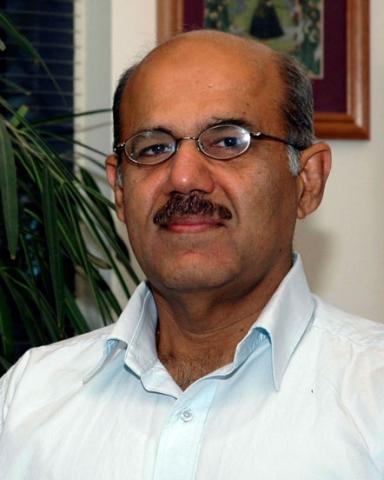

Watch the 2010 Visions of Computing Lecture!
Chandrajit Bajaj - "Accelerating Scientific Discovery"
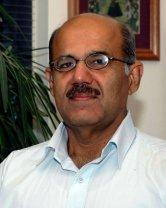
About Chandrajit Bajaj
Chandrajit Bajaj is the director of the Center for Computational Visualization, in the Institute for Computational and Engineering Sciences (ICES) and a Professor of Computer Sciences at the University of Texas at Austin. Bajaj holds the Computational Applied Mathematics Chair in Visualization. He is also an affiliate faculty member of Mathematics, Electrical Engineering, Bio-Medical Engineering, Neurobiology, and the Institute of Cell and Molecular Biology. He additionally participates actively in the activities of the Center for Learning and Memory, and the Center for Perceptual Systems. He graduated from the Indian Institute of Technology, Delhi in 1980, with a Bachelor's Degree in Electrical Engineering, and received his M.S. and Ph.D. degrees in Computer Sciences from Cornell University, in 1983, and 1984 respectively. He is on the editorial boards for the International Journal of Computational Geometry and Applications, the ACM Computing Surveys, the SIAM Journal on Imaging Sciences and the Journal of Visualization. He is on numerous national and international conference committees, has served as a scientific consultant to national labs, and national science foundations of Spain, Austria, Korea, and China. He is a fellow of the American Association for the Advancement of Science (AAAS) and a fellow of the Association of Computing Machinery (ACM).
Nell Dale - "Computer Science Education: 1960 - 2010"
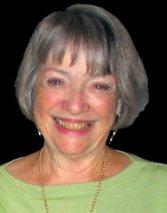
About Nell Dale
Dr. Nell B. Dale was one of the first women to get a Ph.D. in Computer Science in the early 1970s. She graduated from the University of Texas Department of Computer Sciences and remained on the faculty until her retirement from full-time teaching in 2000. She was originator and director of the Women in Science Program in the early '80s and has been a mentor to students and colleagues throughout her career. Her research interests have focused on computer science education as an academic discipline, having co-chaired five dissertations in the area. During her career she has authored or co-authored 18 textbooks, many in multiple editions.
Dr. Dale has received the prestigious SIGCSE Award for Outstanding Contributions to Computer Science Education and was the first woman to receive the Association for Computing Machinery (ACM)'s prestigious Karl V. Karlstrom Outstanding Educator Award. She has won two Hamilton Awards for the best textbook published at UT in a given year. She has received the ABACUS Award from Upsilon Pi Epsilon, Honor Society for the Computing Sciences and was elected a Fellow of the ACM. She received a Doctor of Science, honoris causa, from Sewanee, The University of the South.
Kathryn McKinley - "A Better Space-Time Tradeoff"
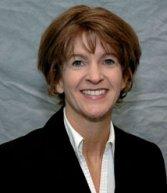
About Kathryn McKinley
Professor McKinley holds an Endowed Professorship in the Department of Computer Science at The University of Texas at Austin. She received her Ph.D. from Rice University working with Ken Kennedy. Her research interests include compilers, memory management, runtime systems, programming languages, security, reliability, and architecture. She and her collaborators have produced tools based on their research that are in wide research and industrial use: the DaCapo Java Benchmarks, TRIPS Compiler, Hoard memory manager, MMTk garbage collector toolkit, and the Immix mark-region garbage collector. McKinley has graduated fourteen PhD students. Her service includes program chair for ASPLOS '04, PACT '05, and PLDI '07; co-Editor-in-Chief of ACM Transactions on Programming Language Systems (TOPLAS) (2007-2010); and CRA-W board member (2009-present). McKinley has received an NSF CAREER award, IBM Faculty awards, outreach awards, and best paper awards. She is an ACM Fellow.
Keshav Pingali - "Parallel Programming Needs New Foundations"
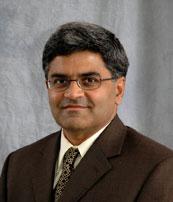
About Keshav Pingali
Keshav Pingali is a Professor in the Department of Computer Science at the University of Texas at Austin, and he holds the W.A. "Tex" Moncrief Chair of Computing in the Institute for Computational Engineering and Sciences (ICES) at UT Austin. He was on the faculty of the Department of Computer Science at Cornell University from 1986 to 2006, where he held the India Chair of Computer Science.
Pingali's research has focused on programming languages and compiler technology for program understanding, restructuring, and optimization. Pingali is a Fellow of the IEEE and a Fellow of the American Association for the Advancement of Science. He serves on the NSF CISE Advisory Committee.



